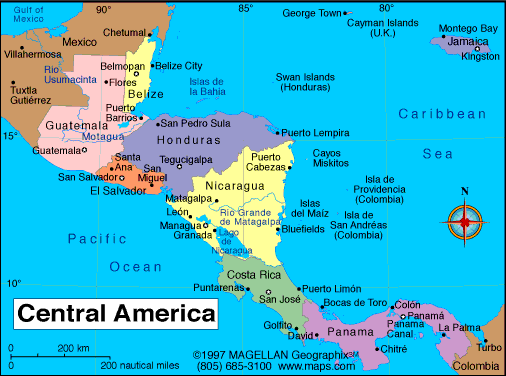The main purpose for taking students to Colombia was to see what Colombian Anabaptist churches are doing in regards to conflict transformation and peacemaking work, and then to look for ways to cultivate similar work in Nicaraguan churches. Colombia and Nicaragua share a lot in common:
- war (Nica. in the 70s and 80s, in Col. it's ongoing)
- poverty (Nica. is the 2nd poorest country in the western hemisphere, in Col. nearly 65% of the population lives in extreme poverty)
- social violence (violent crime and drug-related violence are common in both countries, although moreso in Col.)
- trauma (people in both countries have been traumatized by violence, war, and natural disasters)
Transformative peacemaking work is thus very relevant in both countries. Colombian Anabaptist churches have identified this as central to God's calling for their congregations. I asked my students to think about whether Nicaraguan churches feel the same sense of urgent calling.
Here are a few things that the Colombian Anabaptist churches are doing to confront the violence in their communities:
- conscientious objection program - advocating for a legal alternative to the obligatory military service in Colombia for young men who object to military participation on religious grounds
- documentation of human rights abuse - people living in the middle of Colombian conflict zones often face intimidation to remain silent about the violence and human rights abuses they see on a regular basis. Justapaz (short for "justice & peace") is a multi-faceted organization, and among their many tasks is interviewing victims and/or their families and compiling a public record of the crimes. By way of an example, over the past 10-15 years, over 250 rural Colombian pastors have been killed by the military, the guerrilla fighters, or drug traffickers for confronting the injustices in their communities.

- emergency orientation for displaced people - a short-term support program designed to provide recently displaced families with a brief orientation to Bogotá and how they can survive there. Most displaced families come from the countryside and have no idea how to navigate a big city, find health and government resources, ride the buses, and provide for their families in an urban environment. This orientation program gives families enough food for about a month, and also shows them around the city and gives them the basic tools to find long-term help.
- One Mennonite church started a homework center in a neighborhood where lots of displaced families live. Kids typically just wander the streets b/c their parents are out looking for work. The homework center provides a hot meal and gives the kids a safe space to receive tutoring and participate in creative activities. The church also provides free music lessons to the kids from this center.

- educational savings program - one local church decided to confront the cycle of poverty in its community by promoting education. Many poor families in the community didn't send their children to school because they lacked money for school supplies, uniforms, books, etc. So the church designed a program that encourages kids to save $2.50 per month and deposit it each month at the church. At the end of the year, right before the new school year starts, the church gives the saved money back to the child (about $30). And if the child has met his or her goal, the church gives a bonus of $30. This money is then used to buy the school supplies, etc., and makes sure that families don't have an excuse to not send their kids to school. Church families that don't have kids can also participate and create buffer accounts, so that if a family loses a job in the middle of the year, the kids have a savings buffer and can make their year-end goal.
The church also offers a modest $250 no-interest loan to university students so that they can pay their tuition and fees at the beginning of the semester. Student then work through the semester to pay back the loan; and if they get straight A's, then they receive a 25% discount on their loan.


1 comment:
Woot! You guys showed up on my google news feed today. :) Hehe. Nice job!
Hannah
Post a Comment